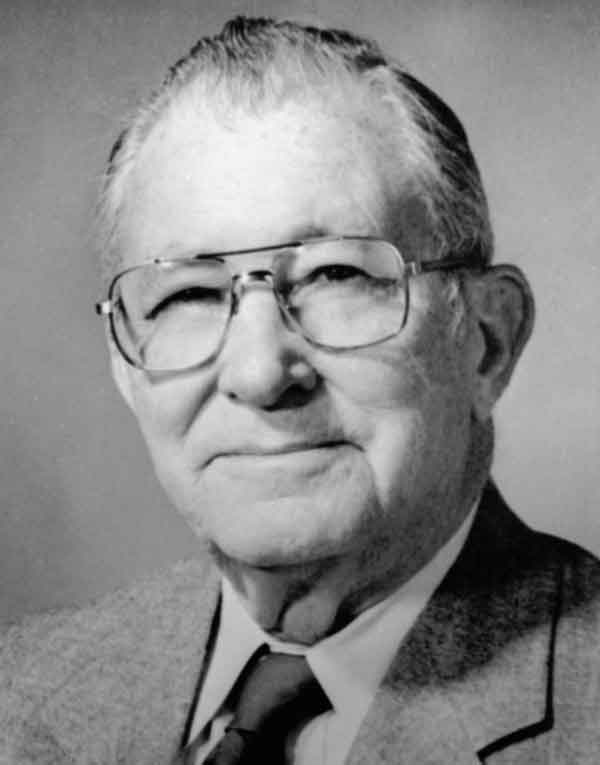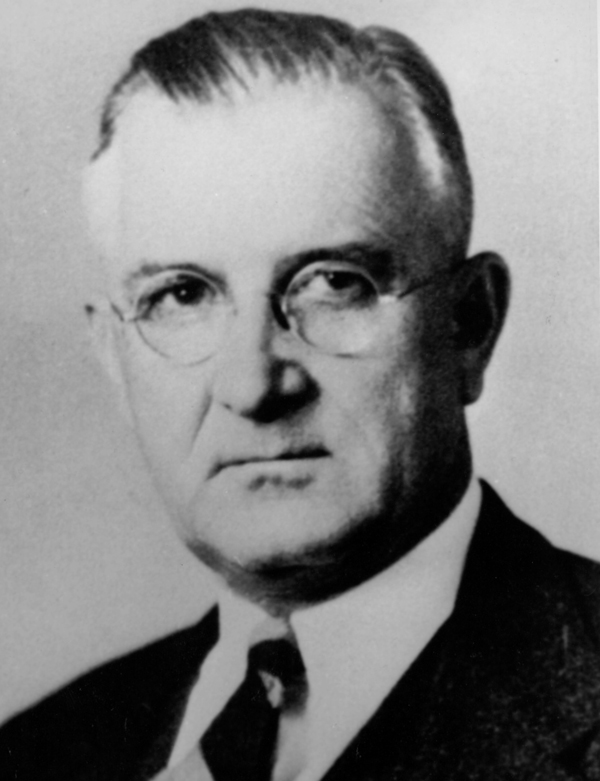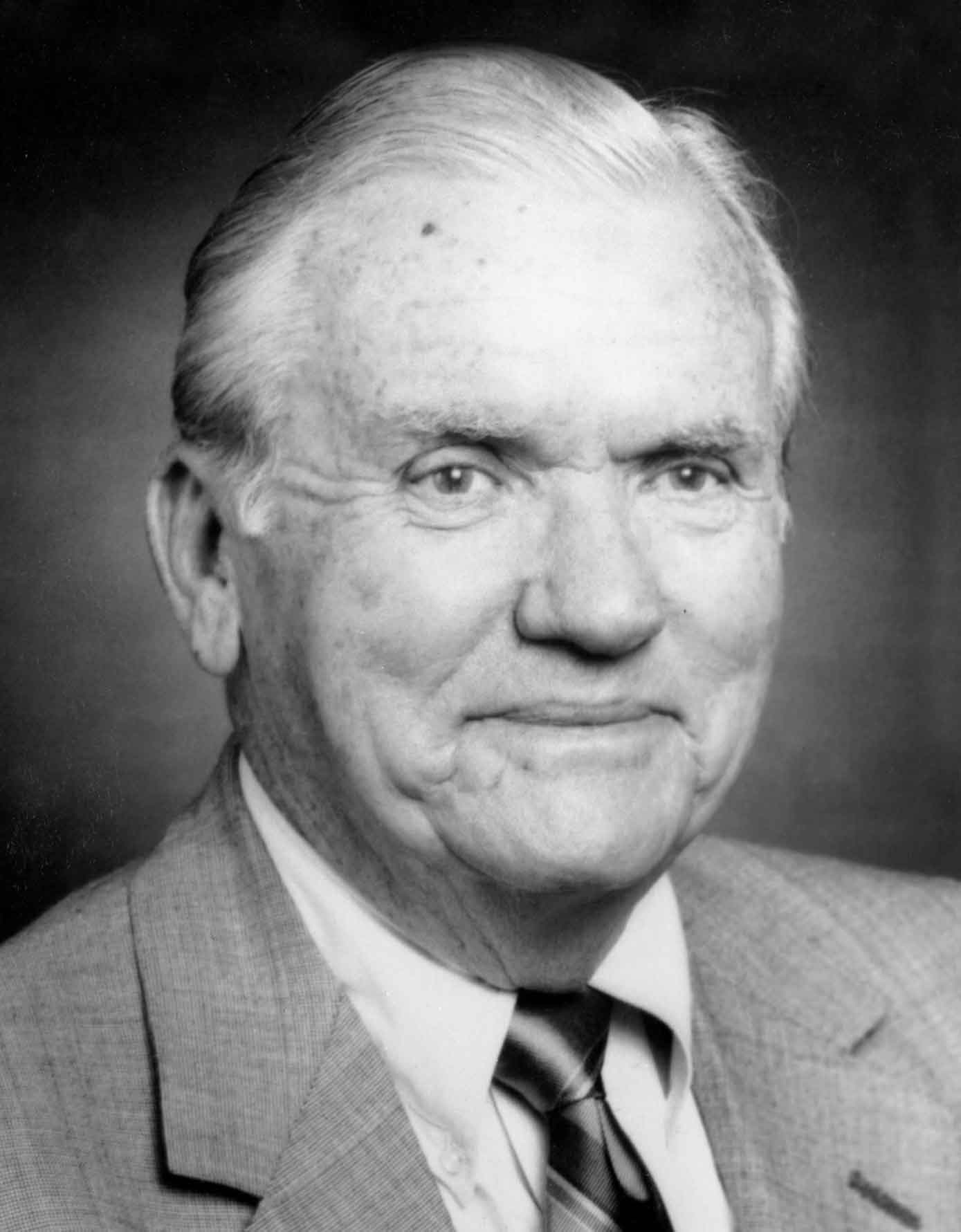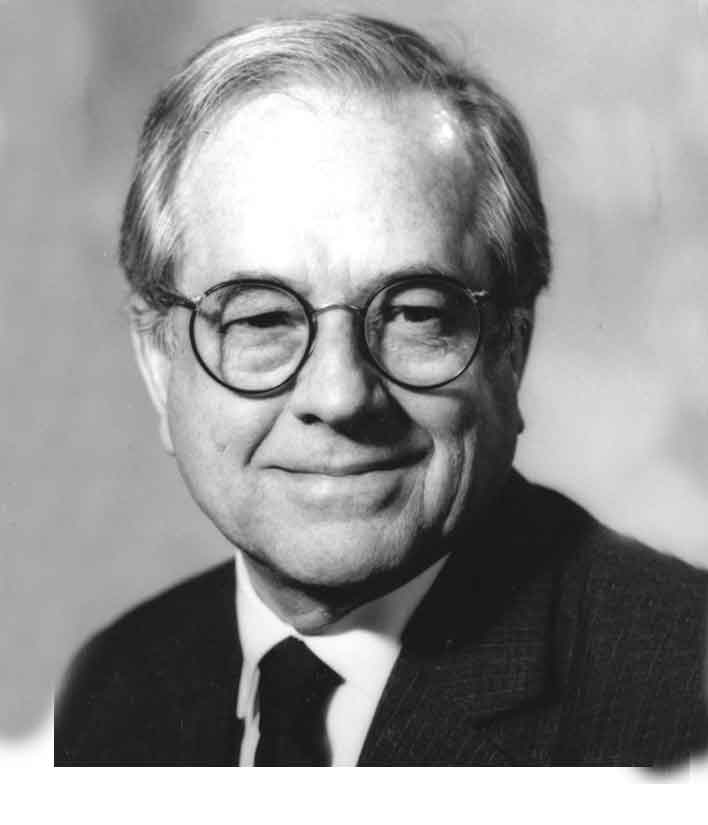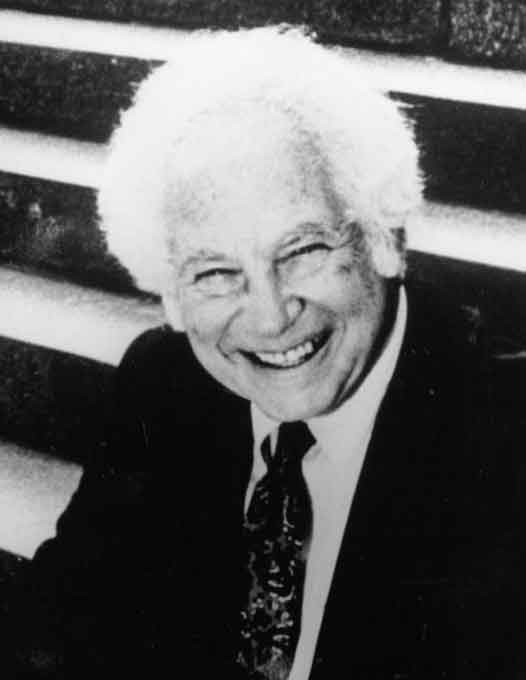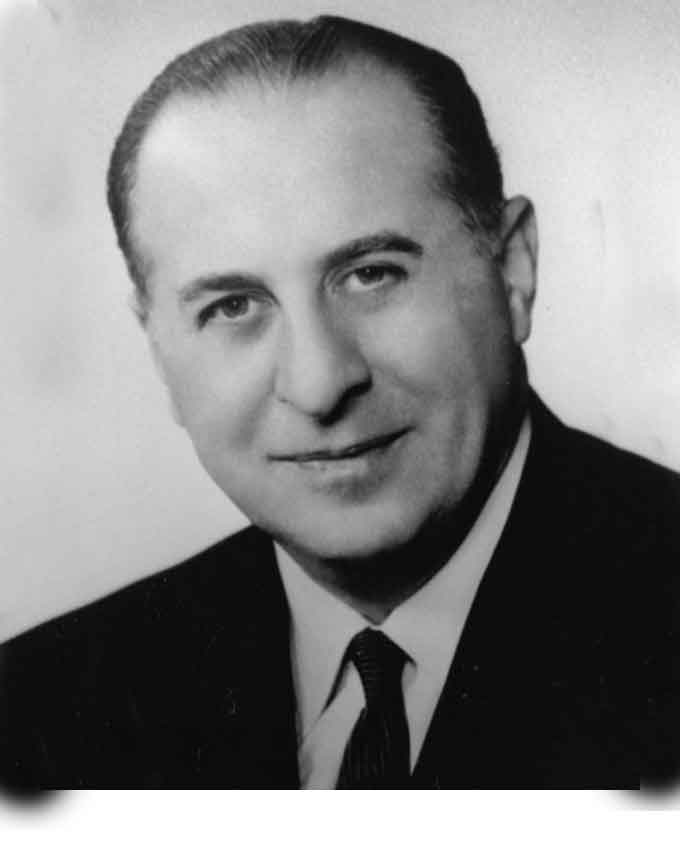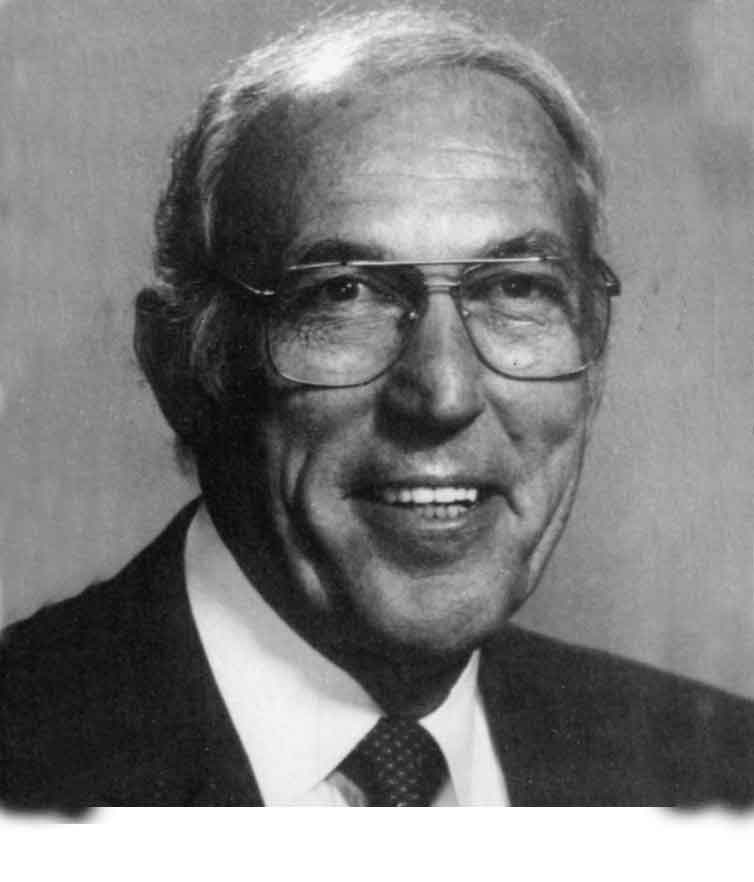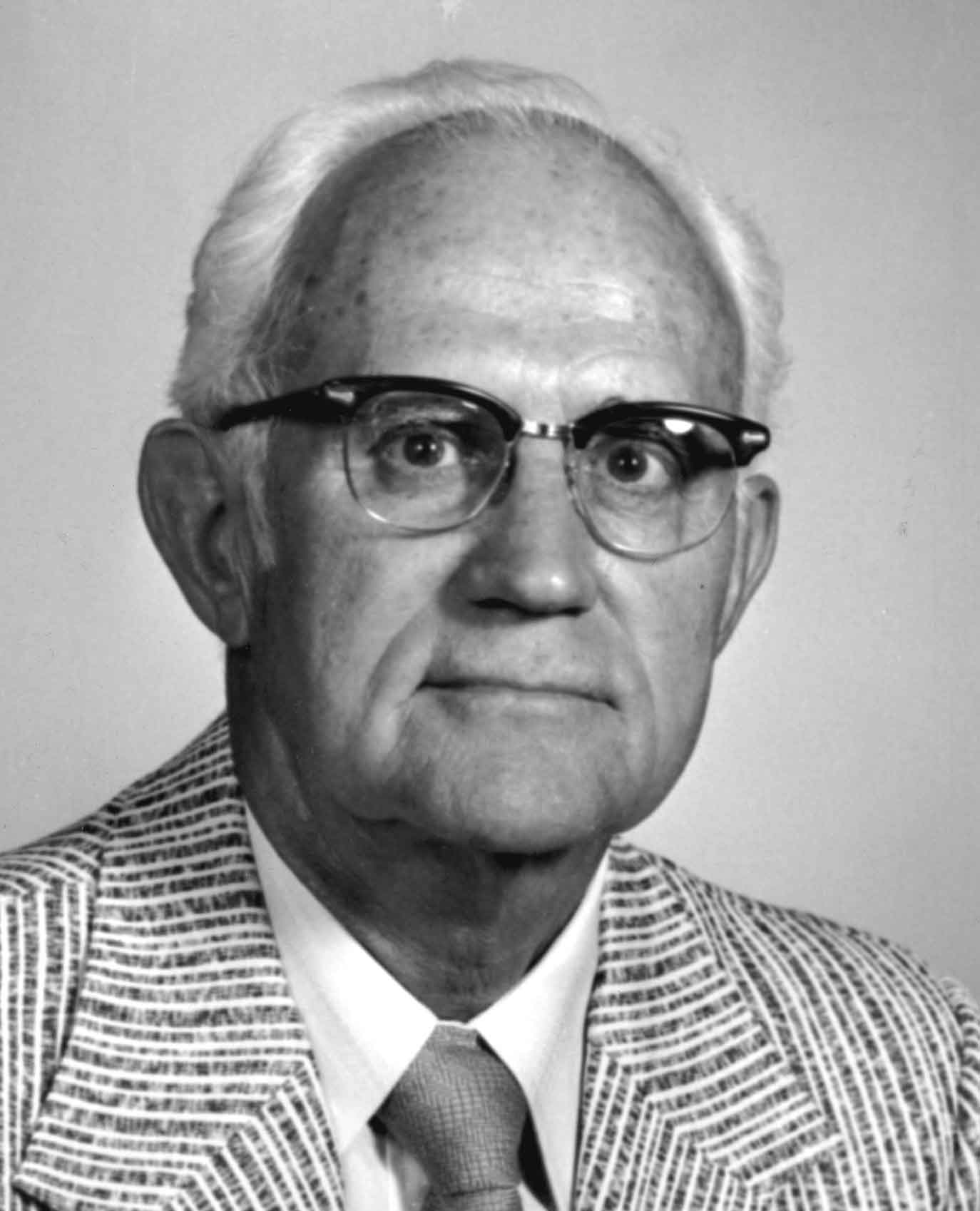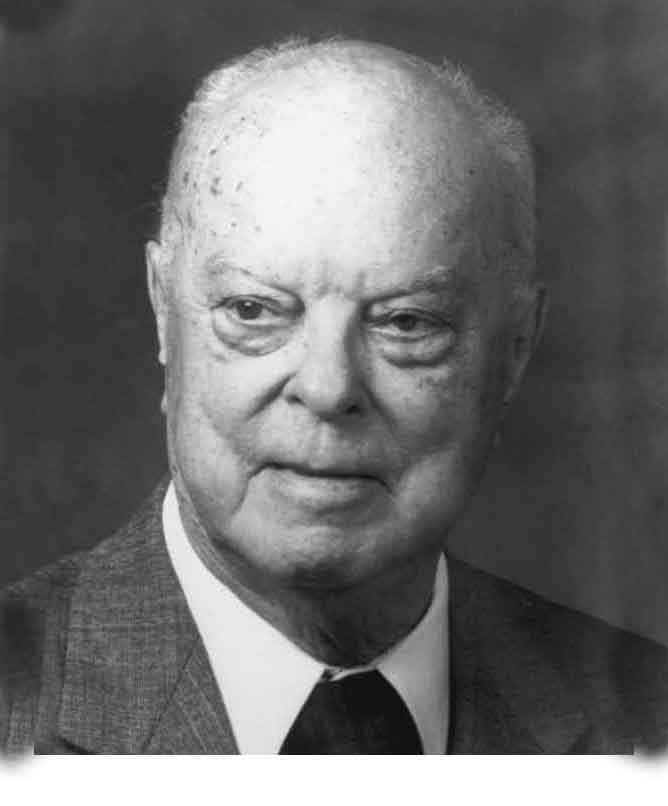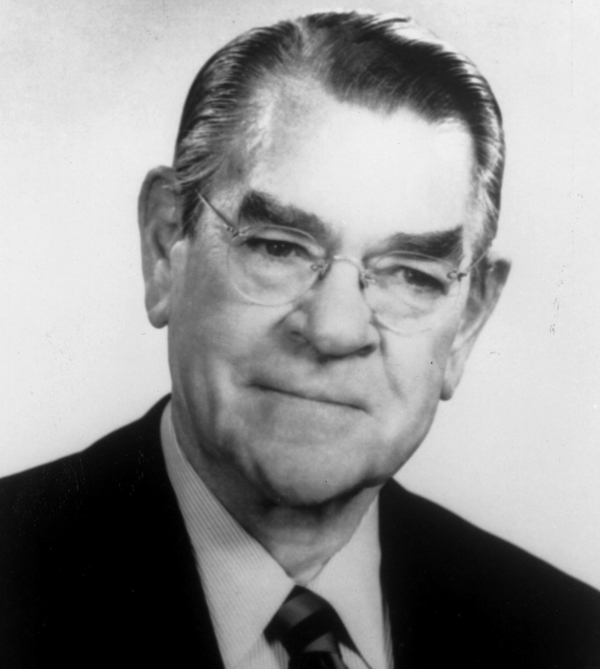John W. Hancock Jr. was born in 1904, the son of the general manager of Roanoke’s streetcar company. He studied mining engineering at Virginia Tech, an institution that became one of his greatest loves, and attended the Wharton School of Finance at the University of Pennsylvania. For 15 years, Hancock sold securities at a New York investment banking firm. But World War II intervened, and Hancock joined the nation’s budding air corps – where he became a lieutenant colonel.
Returning to Roanoke after the war, Hancock went into business for himself, selling Quonset huts, lawn mowers, sprinkler systems and metal windows. With the construction industry booming after the war, Hancock quickly expanded into manufacturing open-web steel joists used as supports for roofs, ceilings, and floors. But when the demand for steel during the Korean War made it difficult to get shipments from Pittsburgh, Hancock decided to build his own steel mill and eventually founded Roanoke Electric Steel in in 1955.
Financed by personal borrowing and the sale of a $300 stock-and-bond package to individual investors, the company eventually made him a multimillionaire. Each share of stock and both second mortgage bonds were worth $100 apiece. A year later Hancock opened the first minimill in the Southeast, employing less than 100 people. The business got off to an inauspicious start: within weeks a secondhand motor failed, and Hancock lacked the resources to pay for the repairs. He concluded that he had no choice but to shut down the plant. He relayed his decision to a Cincinnati scrap dealer, Irvin Bettman of the David J. Joseph Company, explaining that he was unable to pay for the scrap metal he had previously ordered. Batman offered more time, relieving Hancock’s immediate financial pressure. He then received further help from Louis Zinn, president of Port Everglades Steel Corporation, who helped ease cash flow by placing an immediate order for 1,000 tons of steel, as well as providing blanket orders to produce steel for his customers that Hancock could use at his discretion. In this way Roanoke Electric Steel was able to gain its balance and grow into a successful business.
Hancock was eternally grateful to the two men that saved his mill. He would continue to do business with the David J. Joseph Company and Port Everglades Steel Corporation for the rest of his life. In fact, he kept a medallion bearing the name of Louis Zinn on his desk and requested that succeeding presidents of the company maintain the tradition.
The 1980s were difficult years for the steel industry, yet Roanoke Electric Steel remained profitable and continued to expand. In 1985 the company acquired Socar, Incorporated, which manufactured steel joists in plants located in South Carolina and Ohio. A year later the Salem operations began fabricating steel reinforcing bars, establishing the RESCO Steel Products unit. The business would be expanded in 1988 when a nearby facility was also purchased. Also in 1985, at the age of 81, Hancock would step down as the chief executive of Roanoke Steel, although he would remain as chairman of the board. He was succeeded by Donald G. Smith, a longtime executive of the company and secretary of the corporation since 1967. Smith became president in 1985, then chief executive officer in 1986. Finally, he was named chairman of the board in 1989, as Hancock retired completely.
Hancock was a man of rare quality, known to be loyal and generous, revered by his workers and community. He was an influential force in Roanoke, contributing millions of dollars and countless hours to many civic causes, as well as Virginia Tech and other educational funds. A community leader who preferred to work in the background, he was instrumental in Roanoke peacefully achieving desegregation during the civil rights movement, while other Southern cities experienced riots and violence. He helped to form a group of local black and white leaders who quietly worked with businesses to eliminate longtime “separate but equal” practices.
His two most visible legacies in the Roanoke Valley may be the Center in the Square arts complex and the Explore Park, a living-history park under construction in Roanoke County. “There wouldn’t have been an Explore Park without Jack Hancock,” said park Director Rupert Cutler. “There probably wouldn’t have been a Center in the Square.” Hancock also contributed $1 million to endow an engineering chair at Virginia Tech, where a new engineering building bears his name.
“For so many of us, he personified Roanoke leadership,” said Lt. Gov. Don Beyer, one of the many successful political candidates Hancock supported as he crisscrossed party lines over the years. “Whether it was Explore or the Hotel Roanoke or Virginia Tech or the smart highway, Jack Hancock was there.” “Jack Hancock just had a zest for life,” said Doug Cruickshank’s, a Richmond banker who was in Roanoke in the 1980s and headed the group promoting the Explore Park, of which Hancock was a key benefactor. “Here was a guy in his 80s planting oak saplings.”
Mr. Hancock was inducted into the Southwest Virginia Business Hall of Fame in 1994 and passed away in 1994.
John W. Hancock, Jr. was inducted into the Southwest Virginia Business Hall of Fame in 1994.

